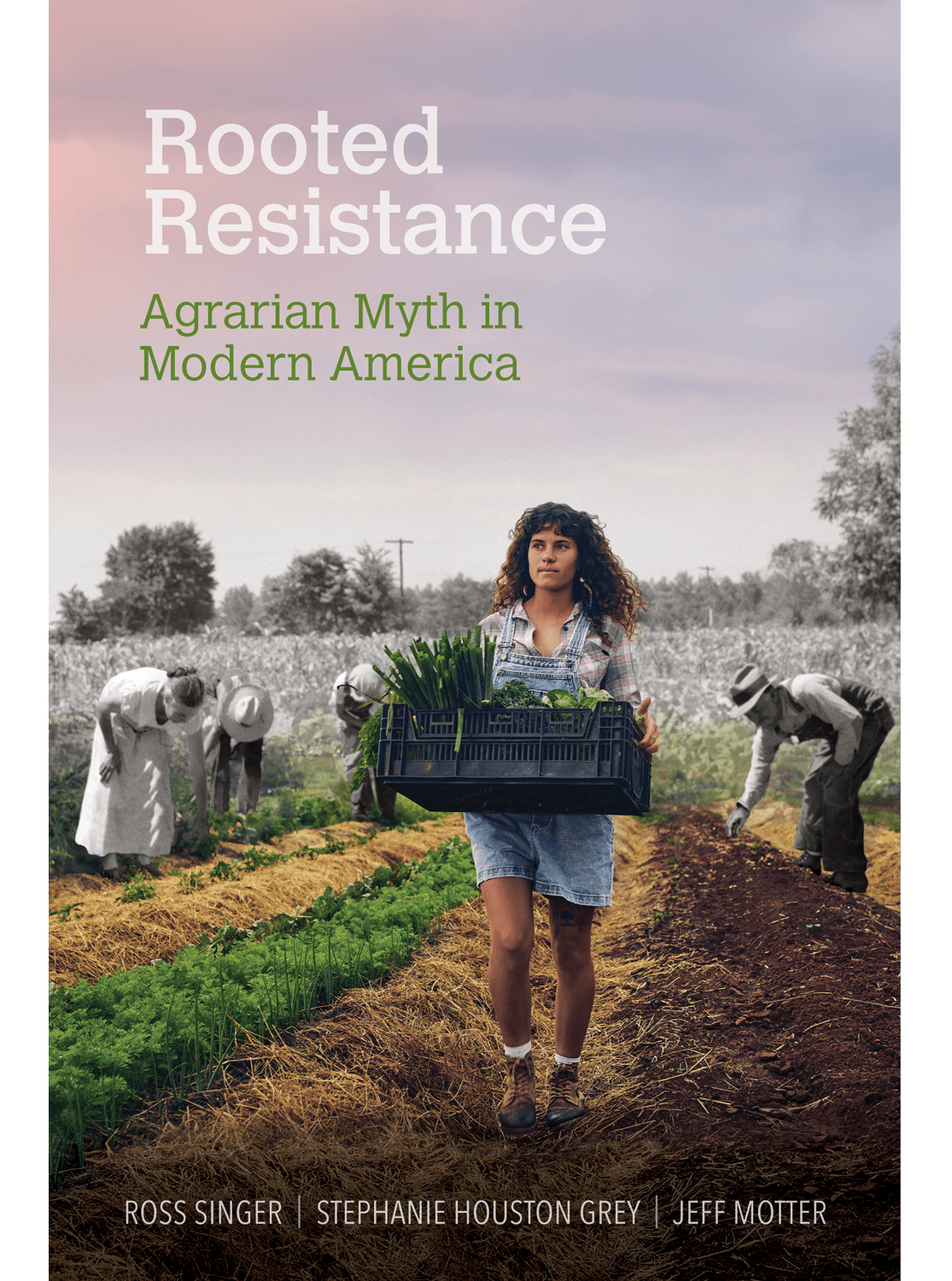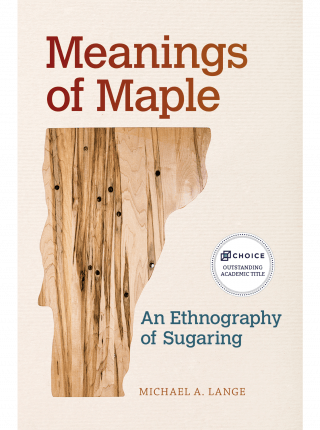From farm-to-table restaurants and farmers markets, to support for fair trade and food sovereignty, movements for food-system change hold the promise for deeper transformations. Yet Americans continue to live the paradox of caring passionately about healthy eating while demanding the convenience of fast food. Rooted Resistance explores this fraught but promising food scene. More than a retelling of the origin story of a democracy born from an intimate connection with the land, this book wagers that socially responsible agrarian mythmaking should be a vital part of a food ethic of resistance if we are to rectify the destructive tendencies in our contemporary food system.
Through a careful examination of several case studies, Rooted Resistance traverses the ground of agrarian myth in modern America. The authors investigate key figures and movements in the history of modern agrarianism, including the World War I victory garden efforts, the postwar Country Life movement for the vindication of farmers’ rights, the Southern Agrarian critique of industrialism, and the practical and spiritual prophecy of organic farming put forth by J. I. Rodale. This critical history is then brought up to date with recent examples such as the contested South Central Farm in urban Los Angeles and the spectacular rise and fall of the Chipotle “Food with Integrity” branding campaign.
By examining a range of case studies, Singer, Grey, and Motter aim for a deeper critical understanding of the many applications of agrarian myth and reveal why it can help provide a pathway for positive systemic change in the food system.
Ross Singer is associate professor of communication at Saginaw Valley State University.
Stephanie Houston Grey is associate professor of communication studies at Louisiana State University.
Jeff Motter is senior instructor of communication at the University of Colorado Boulder.
“Rooted Resistance is an exemplary model for interdisciplinary food studies scholarship. While situated within the field of communications, it is of great interest to scholars pursuing questions of social and national identity (particularly in rural contexts), agricultural and environmental activism, and consumer culture. This book demonstrates the value of rhetorical analysis that communications and media studies methods can offer the field of food studies. It calls for further deconstruction of this pervasive myth and its ongoing role in shaping rural and urban relationships with food, the natural world, and each other.”
—Danielle Jacques, Food, Culture and Society, May 2021
“As a whole, this book offers a deep interdisciplinary analysis of agrarian myth in terms of its many applications and use to influence U.S. social and political climates. This work offers a useful contribution to the food discourse literature by framing agrarian myth as an implicit or deliberate narrative throughout U.S. history, capable of being mobilized and repurposed to advance equitable food justice. Equally so, the book’s modern case studies caution of how agrarian myth can be rebranded for corporate profit, showcasing how underlying democratic virtues and public memories surrounding the American yeoman farmer have been used to resist or ignore present inequality in the food system. Overall, Rooted Resistance: Agrarian Myth in Modern America is a valuable resource for a wide array of graduate-level courses including communication, political science, environmental justice, and sociology targeting the critical complexities of rural social movements. It may also be helpful for environmental justice community leaders and advocates seeking to revise or evaluate their organization’s discourse and use of agrarian myth.”
—Christine da Rosa, Rural Sociology, December 2021
“In Rooted Resistance: Agrarian Myth in Modern America, Ross Singer, Stephanie Houston Grey, and Jeff Motter provide a riveting historical and rhetorical account of ‘agrarianism,’ a philosophy that hinges upon the inherent virtue of pre-industrial family farming as a way of life, and of the connectedness among people and with the land that it fosters. … Rooted Resistance presents an ambitious project of knowledge building, critique, and social advocacy by way of painstakingly detailed rhetorical history and incisive analysis, whose ultimate goal is no less than to reveal the revolutionary potential of new agrarianisms to remake and save the world.”
—Rosalind V. Rini Larson, Digest: A Journal of Foodways & Culture, 7:2 (2019-2020)
“Rooted Resistance provides an accessible and engaging genealogy of agrarian myth that is at work in today’s media and culture, from the seed of the twentieth century to the harvest of the twenty first.”
—Carrie Tippen, author of Inventing Authenticity: How Cookbook Writers Redefine Southern Identity
Series Editors’ Preface
Introduction:Mythic Rhetoric Imagines the American Garden
I Seeds of Resistance
1 The Home Front Plants Agrarian Munitions
2 Country Life Defends Yeoman Democracy
3 The Southern Agrarians Take Their Stand
4 Rodale’s Jeremiad Inspires the Organic Movement
II Threatened Harvests
5 The South Central Farmers Cultivate a Precarious Community
6 Chipotle Brands Agrarian Innocence
7 RAM Mechanizes God’s Farmer
Conclusion: Agrarians Greet the Apocalypse
Notes
Bibliography
Index

Food and Foodways is a series from the University of Arkansas Press that explores historical and contemporary topics in global food studies. We are committed to representing a diverse set of voices that tell lesser known food stories and to provoking new avenues of interdisciplinary research. Our strengths are works in the humanities and social sciences that use food as a critical lens to examine broader cultural, environmental, and ethical issues. In addition to scholarly books, we publish creative nonfiction that explores these topics with a focus on food’s sensory dimensions.

Adopted at: Eastern Oregon University
Course: WR 393 Rhetoric of Public Culture
Course Description: Introduction to contemporary rhetorical theories and methods and their applications to public texts and persuasion in everyday life.
Professor: Cori Brewster
Term: Spring 2021






